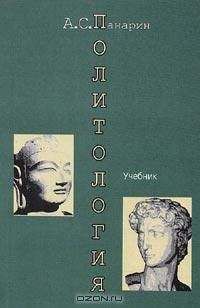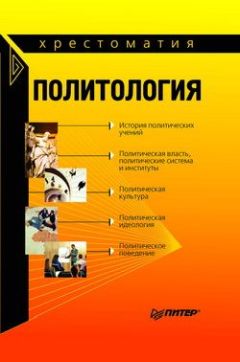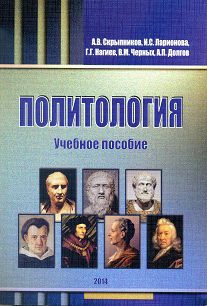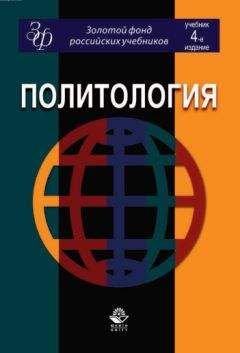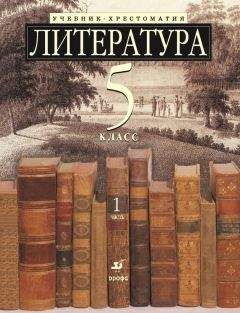Чарльз Эндрейн - Сравнительный анализ политических систем
119
Анализ «дилеммы автократической модернизации» см.: Tim McDaniel, Autocracy, Modernization, and Revolution in Russia and Iran (Princeton, NJ: Princeton University Press, 1991), 3–11, 88–110.
120
Theda Skocpol, States and Social Revolutions: A Comparative Analysis of France, Russia, and China (New York: Cambridge University Press, 1979), esp. 3—43, 67—81, 147–57, 161–73, 236–93; Theda Skocpol, «Social Revolutions and Mass Military Mobilization», World Politics 40 (January 1988): 147–68; Jeff Goodwin and Theda Skocpol, «Explaining Revolutions in the Contemporary Third World», Politics and Society 17 (December 1989): 489–509; Matthew Soberg Shugart, «Patterns of Revolution», Theory and Society 18 (March 1989): 249–71; Robert H. Dix, «Why Revolutions Succeed and Fail», Polity 16 (Spring 1984): 423–46; Ralph Thaxton, China Turned Rightside Up: Revolutionary Legitimacy in the Peasant World (New Haven, CT: Yale University Press, 1983); John King Fairbank, The United Stales and China, 4th ed., enlarged (Cambridge, MA: Harvard University Press, 1983), 220–357; John King Fairbank, China: A New History (Cambridge, MA: The Belknap Press of Harvard University Press, 1992), 269—341; James R. Townsend and Brantly Womack, Politics in China, 3d ed. (Boston: Little, Brown, 1986), 43—81; Gary Hawes, «Theories of Peasant Revolution: A Critique and Contribution from the Philippines», World Politics 42 (January 1990): 261–98; H. John LeVan, «Vietnam: Revolution of Postcolonial Consolidation», in Revolutions of the Late Twentieth Century, ed. Jack A. Goldstone, Ted Robert Gurr, and Farrokh Moshiri (Boulder, CO: Westview Press, 1991), 52–87; Robert Maranto and Paula S. Tuchman, «Knowing the Rational Peasant: The Creation of Rival Incentives Structures in Vietnam», Journal of Peace Research 29, no. 3 (1992): 249–64; Charles F. Andrain, Political Change in the Third World (Boston, MA: Unwin Hyman, 1988), 76–127.
121
Karl Marx, Political Writings, vol. 2: Surveys from Exile, ed. David Fembach (New York: Vintage Books, 1974), 148.
122
Marvin Zonis, Majestic Failure: The Fall of the Shah (Chicago, IL: University of Chicago Press, 1991), 54.
123
McDaniel, Autocracy, Modernization, and Revolution in Russia and Iran; Zonis, Majestic Failure, Farideh Farhi, «Ideology and Revolution in Iran», Journal of Developing Societies 6 (January—April 1990): 98—112; Farideh Farhi, «State Disintegration and Urban–Based Revolutionary Crisis: A Comparative Analysis of Iran and Nicaragua», Comparative Political Studies 21 (July 1988): 231—56; Farrokh Moshiri, «Iran: Islamic Revolution against Westernization», in Revolutions of the Late Twentieth Century, 116—35; David Jorjani, «Revolution in the Semiperiphery: The Case of Iran», in Revolution in the World–System, ed. Terry Boswell (Westport, CT: Greenwood Press, 1989), 129—45; Val Moghadam, «Populist Revolution and the Islamic State in Iran», in Revolution in the World–System, 147—63; William O. Beeman, Language, Status, and Power in Iran (Bloomington: Indiana University Press, 1986); Afsaneh Najmabadi, «Iran's Turn to Islam: From Modernism to a Moral Order», Middle East Journal (Spring 1987): 202–17; G. Hossein Razi, «The Nexus of Legitimacy and Performance: The Lessons of the Iranian Revolution», Comparative Politics 19 (July 1987): 453—69; Shahrough Akliavi, «Elite Factionalism in the Islamic Republic of Iran», Middle East Journal 41 (Spring 1987): 181–201; Andrain, Political Change in the Third World, 252—79; Michael Tien–Lung Liu, «State and Urban Revolutions: Explaining the Revolutionary Outcomes in Iran and Poland», Theory and Society 17 (March 1988): 179—209; John Orme, «Dismounting the Tiger: Lessons from Four Liberalizations», Political Science Quarterly 103 (Summer 1988): 245–65; James A. Bill, The Eagle and the Lion: The Tragedy of American–Iranian Relations (New Haven, CT: Yale University Press, 1988); Robin Wright, In the Name of God: The Khomeini Decade (New York: Simon and Schuster, 1989); Nikola B. Schahgaldian, «Iran after Khomeini», Current History 89 (February 1990): 61–64, 82–84; Nikki R. Keddie, «Can Revolutions Be Predicted; Can Their Causes Be Explained?» Contention 1 (Winter 1992): 159–82.
124
McDaniel, Autocracy, Modernization, and Revolution in Russia and Iran, 3—13, 111–48,185–232.
125
Raymond A. Bauer, Alex Inkeles, and Clyde Kluckhohn, How the Soviet System Works (New York: Random House Vintage Books, 1956), 52–59; Lars T. Lih, «Stalinism», in The Oxford Companion to Politics of the World, ed. Joel Krieger (New York: Oxford University Press, 1993), 876–78.
126
Ekkart Zimmermann, «On the Outcomes of Revolutions: Some Preliminary Considerations», Sociological Theory 8 (Spring 1990): 33–47; Raj Desai and Harry Eckstein, «Insurgency: The Transformation of Peasant Rebellion», World Politics 42 (July 1990): 441—65; John Sloan and Kent L. Tedin, «The Consequences of Regime Type for Public–Policy Outputs», Comparative Political Studies 20 (April 1987): 98–124; Skocpol, «Social Revolutions and Mass Military Mobilization», 147–68; John W. Sloan, «The Policy Capabilities of Democratic Regimes in Latin America», Latin American Research Review 24, no. 2 (1989): 113–26; Karen L. Remmer, «Democracy and Economic Crisis: The Latin American Experience», World Politics 42 (April 1990): 315—35; Alexander Woodside, «History, Structure, and Revolution in Vietnam», International Political Science Review 10 (April 1989): 154–55; Gareth Porter, «The Politics of 'Renovation' in Vietnam», Problems of Communism 39 (May—June 1990): 72–88; Brigid A. Starkey, «Islam, Culture and Revolution: The Case of Iran», Journal of Developing Societies 6 (January–April 1990): 87–97; John Foran and Jeff Goodwin, «Revolutionary Outcomes in Iran and Nicaragua: Coalition Fragmentation, War, and the Limits of Social Transformation», Theory and Society 22 (April 1993): 209–47.
127
Hector E, Schamis, «Reconceptualizing Latin American Authoritarianism in the 1970s», Comparative Politics 23 (January 1991): 201–20.
128
Dennis Chong, Collective Action and the Civil Rights Movement (Chicago: University of Chicago Press, 1991), 191–229.
129
Jan Feldman, «The Propagation and Impact of Ideology in the USSR», Problems of Communism 38 (September—October 1989): 87—95; Raymond A. Bauer, Alex Inkeles, and Clyde Kluckhohn, How the Soviet System Works (New York: Vintage Books, 1956), 21–99: Bartomiej Kamifiski and Karol Soltan, «The Evolution of Communism», International Political Science Review 10 (October 1989): 371–91; Leslie Holmes, Politics in the Communist World (Oxford: Oxford University Press, 1986); Jeffrey W. Hahn, «Power to the Soviets?» Problems of Communism 38 (January–February 1989): 34–46; Don van Atta, «The USSR as a 'Weak State': Agrarian Origins of Resistance to Perestroika», World Politics 42 (October 1989): 129–49; Graeme Gill, «Ideology, Organization and the Patrimonial Regime», Journal of Communist Studies 5 (September 1989): 285–302; Patrick Flaherty, «Class Power in Soviet Society», New Politics 2 (Winter 1990): 157–77; Zhores Medvedev, «Soviet Power Today», New Left Review, no. 179 (January–February 1990): 65—80; Lars T. Lih, «The Transition Era in Soviet Politics», Current History 88 (October 1989): 333–36, 353–54; Hillel H. Ticktin, «The Nature of the Disintegration of the Stalinist System of the USSR», in Research in Political Economy, vol. 12, ed. Paul Zarembka (Greenwich, CT: JAI Press, 1990), 209–52.
130
См.: David E. Apter, «Mao's Republic», Social Research 54 (Winter 1987): 691—729; David E. Apter, «Yan'an and the Narrative Reconstruction of Reality», Daedalus 122 (Spring 1993): 207–32; David Bachman, «The Limits on Leadership in China», Asian Survey 32 (November 1992): 1046–62; Vivienne Shue, The Reach of the State: Sketches of the Chinese Body Politic (Stanford, CA: Stanford University Press, 1988); Michael Oksenberg, «Economic Policy–Making in China», in Communist Politics: A Reader, ed. Stephen White and Daniel Nelson (New York: New York University Press, 1986), 292–314; Tony Saich, «Party–Building since Mao: A Question of Style?» in Communist Politics: A Reader, 192—217; Li Cheng and Lynn White, «The Thirteenth Central Committee of the Chinese Communist Party», Asian Survey 28 (April 1988): 371—99; Jean С Robinson, «Mao after Death: Charisma and Political Legitimacy», Asian Survey 28 (March 1988): 353—68; Cheng Li and David Bachman, «Localism, Elitism, and Immobilism: Elite Formation and Social Change in Post–Мао China», World Politics 42 (October 1989): 64–94; James V. Feinerman, «Human Rights in China», Current History 88 (September 1989): 273–76, 293–95; David S. G. Goodman, «Review Article: Political Change in China—Power, Policy and Process», British Journal of Political Science 19 (July 1989): 425—44; Corinna–Barbara Francis, «The Progress of Protest in China: The Spring of 1989», Asian Survey 29 (September 1989): 898–915; Andrew G. Walder, «The Political Sociology of the Beijing Upheaval of 1989», Problems of Communism 38 (September–October 1989): 30–40; Andrew G. Walder, «Workers, Managers and the State: The Reform Era and the Political Crisis of 1989», China Quarterly, no. 127 (September 1991): 467–92; Elizabeth J. Perry, «Intellectuals and Tiananmen: Historical Perspective on an Aborted Revolution», in The Crisis of Leninism and the Decline of the Left: The Revolutions of 1989, ed. Daniel Chirot (Seattle: University of Washington Press, 1991), 129–46; Elizabeth J. Perry, «China in 1992: An Experiment in Neo–Authoritarianism», Asian Survey 33 (January 1993): 12–21; Chirin M. Rai, «Student Lives, Student Voices: University Politics in Post–Мао China», Journal of Communist Studies 6 (September 1990): 64–82; Joseph W. Esherick and Jeffrey N. Wasserstrom, «Acting Out Democracy: Political Theater in Modem China.» Journal of Asian Studies 49 (November 1990): 835–65; Wei–Chin Lee, «Iron and Nail: Civil–Military Relations in the People's Republic of China», Journal of Asian and African Studies 26 (January–April 1991): 132–48; Yang Zhong, «Civil–Military Relations in Changing Communist Societies: A Comparative Study of China and the Soviet Union», Studies in Comparative Communism 24 (March 1991): 77–102: Harlan W. Jencks, «Civil–Military Relations in China: Tiananmen and After», Problems of Communism 40 (May–June 1991): 14–29; David Shambaugh, «The Soldier and the State in China: The Political Work System in the People's Liberation Army», China Quarterly, no. 127 (September 1991): 527—68; June Teufel Dreyer, «The People's Liberation Army and the Power Struggle of 1989», Problems of Communism 38 (September–October 1989): 41–48; Anita Chan, «China's Long Winter», Monthly Review41 (January 1990): 1—14; Benedict Stavis, «Contradictions in Communist Reform: China before 4 June 1989», Political Science Quarterly 105 (Spring 1990): 31–52; Lowell Dittmer, «China in 1989: The Crisis of Incomplete Reform», Asian Survey 30 (January 1990): 25—41; Richard Baum, «Political Stability in Post–Deng China», Asian Survey 32 (June 1992): 491–505; John P. Burns, «China's Governance: Political Reform in a Turbulent Environment», China Quarterly, no. 119 (September 1989): 481–518; Avery Goldstein, «Explaining Politics in the People's Republic of China: The Structural Alternative», Comparative Politics 22 (April 1990): 301—22; He Baogang, «Legitimacy in the Deng Era in China: A Critical Reappraisal», Journal of Communist Studies! (March 1991): 20–45; Lucian W. Pye, «The State and the Individual: An Overview Interpretation», China Quarterly, no. 127 (September 1991): 443–65; William McCord, «A Rebirth of'Moderation' in China?» Studies in Comparative International Development 26 (Spring 1991): 29–42; Barry Sautman, «Politicization, Hyperpoliticization, and Depoliticization of Chinese Education», Comparative Education Review 35 (November 1991): 669—89; Zhengyuan Fu, «Continuities of Chinese Political Tradition», Studies in Comparative Communism 24 (September 1991): 259–79; Michael D. Swaine, «China Faces the 1990's: A System in Crisis», Problems of Communism 31 (May–June 1990): 20—35; Susan L. Shirk, «'Playing to the Provinces': Deng Xiaoping's Political Strategy of Economic Reform», Studies in Comparative Communism 23 (Autumn–Winter 1990): 227—58; Peter Nolan, «Prospects for the Chinese Economy», Cambridge Journal of Economics 15 (March 1991): 113—24; Yusheng Peng, «Wage Determination in Rural and Urban China: A Comparison of Public and Private Industrial Sectors», American Sociological Review 57 (April 1992): 198—213; Nicholas D. Kristof, «Free–Market 'Dragon' Gains in the Fight for China's Soul», New York Times, March 26, 1992, pp. A 1, A7; Nicholas D. Kristof, «Four Years after Tiananmen, The Hard Line Is Cracking», New York Times, June 1, 1993, pp. A 1, A4; Li Peilin, «China in a Period of Social Transformation», International Social Science Journal 44 (August 1992): 433—43; Maria Hsia Chang, «China's Future: Regionalism, Federation, or Disintegration», Studies in Comparative Communismib (September 1992): 211—27; Minxin Pei, «Societal Takeover in China and the USSR», Journal of Democracy 3 (January 1992): 108–18; Jan Prybyla, «China's Economic Dynamos», Current History 91 (September 1992): 262—67; Jan S. Prybyla, «Economic Reform of Socialism: The Dengist Course in China», Annals of the American Academy of Political and Social Science 507 (January 1990): 1 13—22; Connie Squires Meaney, «Market Reform in a Leninist System: Some Trends in the Distribution of Power, Status, and Money in Urban China», Studies in Comparative Communism 22 (Summer/Autumn 1989): 203—20; Thomas B. Gold, «Urban Private Business in China», Studies in Comparative Communism 22 (Summer/Autumn 1989): 187–201; Y. Y. Kueh, «The Maoist Legacy and China's New Industrialization Strategy», China Quarterly, no. 119 (September 1989): 420–47; Sha Ye, «The Role of China's Managing Directors in the Current Economic Reform», International Labour Review 126 (November–December 1987): 691—701; Tony Saich, «The Reform Process in the People's Republic of China», Journal of Communist Studies 3 (December 1987): 9—27; Bela Balassa, «China's Economic Reforms in a Comparative Perspective», Journal of Comparative Economics 11 (September 1987): 410–26; Dwight Heald Perkins, «Reforming China's Economic System», Journal of Economic Literature 26 (June 1988): 601—45; Charles Bettelheim, «Economic Reform in China, Journal of Development Studies 24 (July 1988): 15–49; Roger H. Gordon and We. Li, «Chinese Enterprise Behavior under the Reforms», American Economic Review 81 (May 1991): 202—6, Athar Hussain and Nicholas Stern, «Effective Demand, Enterprise Reforms and Public Finance in China», Economic Policy 6 (April 1991): 141—86; Mario I. Blejer and Gyorgy Szapary, «The Evolving Role of Tax Policy in China», Journal of Comparative Economics 14 (September 1990): 461—72; James V. Feinerman, «Economic and Legal Reform in China, 1978–91», Problems of Communism 40 (September–October 1991): 62–75; Wang Zhonghui, «Private Enterprise in China: An Overview», Journal of Communist Studies 6 (September 1990): 83–98; Shufan Ding, The Party–State Relationship in China, 1978–1986 (Ph.D. dissertation. Department of Government and International Studies, University of Notre Dame, 1987); Heath B. Chamberlain, «Party—Management Relations in Chinese Industries: Some Political Dimensions of Economic Reform», China Quarterly, no. 1 12 (December 1987):'631—61; John P. Burns, «China's Nomenklatura System», Problems of Communism 36 (September–October 1987): 36—51; Brace J. Dickson, «What Explains Chinese Political Behavior? The Debate over Structure and Culture.» Comparative Politics 25 (October 1992): 103—18. Х.Э. Сэлисбери (Harrison E. Salisbury, The New Emperors: China in the Era of Mao and Deng (Boston: Little, Brown, 1992, 225, 417)) называет Мао Большим драконом, а Дэна — Малым драконом. Согласно мифам имперского Китая, драконы охраняли трон императора. Будучи обычно безобидными, в случае предательства они становятся безжалостными.
